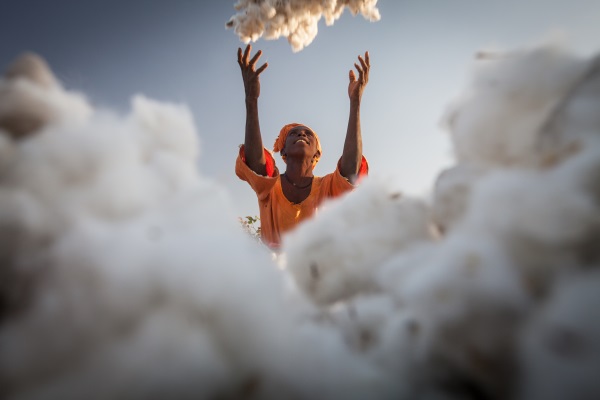Find out about the history of Fairtrade and the global impact of the Fairtrade movement.
Updated: December 2022
1. Fairtrade labelling began in the 1980s
Fairtrade started in response to the struggles of Mexican coffee farmers after the collapse of world coffee prices in the 1980s.
This price crash was a major factor in the launch of the first Fairtrade certification label, set up by a Dutch development agency. The first ‘Fairtrade’ coffee from Mexico was sold in Dutch supermarkets in 1989. It was branded Max Havelaar after a fictional Dutch character who opposed the exploitation of coffee pickers in Dutch colonies.
2. The Fairtrade Foundation was set up in 1992
The Fairtrade Foundation – the UK arm of the Fairtrade movement – was established in 1992.
Driven by demands for fairer trade by small-scale coffee farmers, the Fairtrade Foundation was founded by:
- Catholic international development agency CAFOD
- Christian Aid
- Oxfam
- Traidcraft
- the World Development Movement
- the National Federation of Women’s Institutes.
3. Green & Black’s Maya Gold was the first Fairtrade-certified product in the UK
In 1994 Green & Black’s Maya Gold was the first chocolate bar in the UK to carry the FAIRTRADE Mark. It was made with Fairtrade cocoa from Belize. This was followed by Fairtrade Cafédirect coffee, Percol coffee and Clipper tea.
4. 50% of Fairtrade is co-owned by farmers and workers
There are 1.9 million farmers and workers in organisations across the Fairtrade system. Farmers and workers co-own Fairtrade, having 50 percent of the vote at the General Assembly which, along with the Board of Directors, governs the international Fairtrade scheme.
This gives them an equal say in the Fairtrade system.
5. Fairtrade mainly works with small-scale farmers
Of the 1.9 million farmers and workers that are part of Fairtrade, 81 percent are small-scale farmer organisations.
They face unique disadvantages such as limited access to markets and information about price and quality. Fairtrade addresses these challenges through the Fairtrade Standards which are devised specifically for large-scale farms or small-scale producer organisations.
6. The iconic FAIRTRADE Mark was launched in 2002
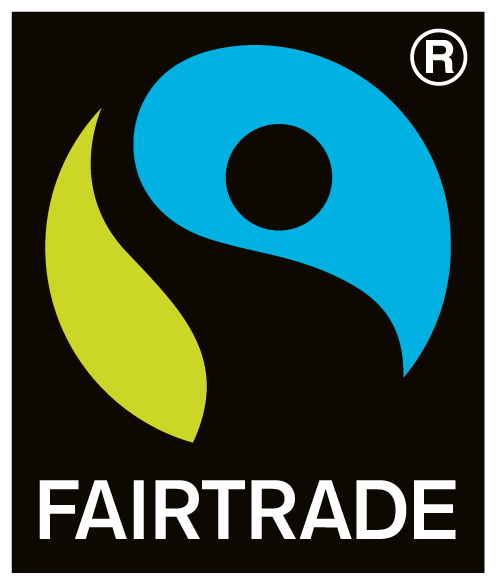
The now-familiar FAIRTRADE Mark was designed to represent the optimism of farmers and workers. It symbolises the blue sky of potential and the green of growth. The figure of the producer has an arm raised in celebration of human determination.
7. Fairtrade sets rigorous standards to protect workers and the environment
Fairtrade sets social, economic and environmental standards that both companies and farmers and workers must adhere to.
For farmers and workers, the standards include protection of workers’ rights and the environment.
For companies they include paying no less than the Fairtrade Minimum Price for a commodity. They also include payment of the additional Fairtrade Premium to the farming co-operatives, who use the Premium to invest in essential projects of their own choice.
8. Fairtrade products and ingredients are independently certified
All Fairtrade producer organisations and companies are independently certified by an organisation called FLOCERT.
FLOCERT auditors are highly qualified, usually based in the countries and regions where farmers and workers are located. They are familiar with local cultures, languages and legal systems.
By checking compliance with Fairtrade Standards, FLOCERT ensures that social and environmental standards are met for the raw materials and products that carry the FAIRTRADE Mark. It also ensures that farmers and workers receive the Fairtrade Minimum Price and Fairtrade Premium.
9. Most Fairtrade products cannot be grown in the UK
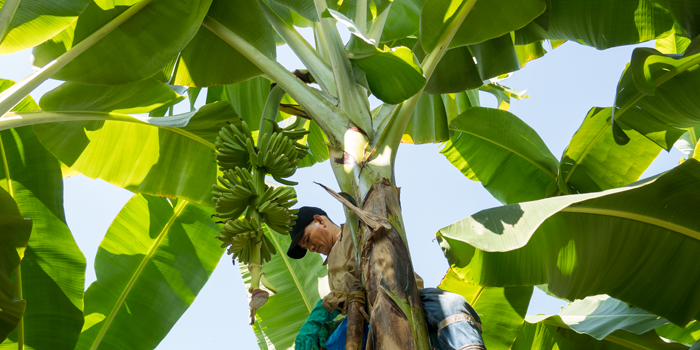
Fairtrade focuses mainly on products such as coffee and bananas that can’t be grown in temperate climates. It also focuses on products that can’t be grown in sufficient quantities in the UK and EU to meet demand.
10. There are over 6,000 Fairtrade products available to buy in UK shops
There are more than 30,000 products with a FAIRTRADE Mark worldwide. Buying Fairtrade is easy in the UK as there are an enormous variety of products from bananas, coffee and tea to spices, beauty products, gold, cotton and flowers.
Every purchase you make of a Fairtrade product can make a real difference for farmers and workers around the world.
Explore more products on our Buying Fairtrade page.
11. Every Fairtrade banana bought in the UK makes a real difference
The Fairtrade banana is a leading force in the fight for fairness: our unique Fairtrade Premium helps support living wages for many bananas workers who are often paid poverty-level wages. Find out more in our Top 12 facts about bananas blog.
Waitrose & Partners, Ocado, Co-op, Sainsbury’s and Booths sell ONLY Fairtrade bananas and many more stores stock Fairtrade bananas. Just be sure to look for the Fairtrade label.
Watch this film about the difference your choice can make to banana farmers.
12. You can find Fairtrade Gold in some smartphones
Most smartphones contain a small amount of gold. Considering the number of smartphones in the world, that is a lot of gold!
However gold miners face many challenges, often working in dire working conditions with unfair pay, child labour and exposure to toxic chemicals.
In 2011 Fairtrade launched the ground-breaking Fairtrade Gold, the world’s first independent ethical certification system for gold.
By buying Fairtrade Gold you’re supporting small-scale miners to get a fair deal for their hard work, as well as protecting the environment.
13. The impact of Fairtrade is proven
Find out seven ways Fairtrade made an impact for farmers and workers around the world in 2021.
14. Fairtrade Premium sets us apart from other certification schemes
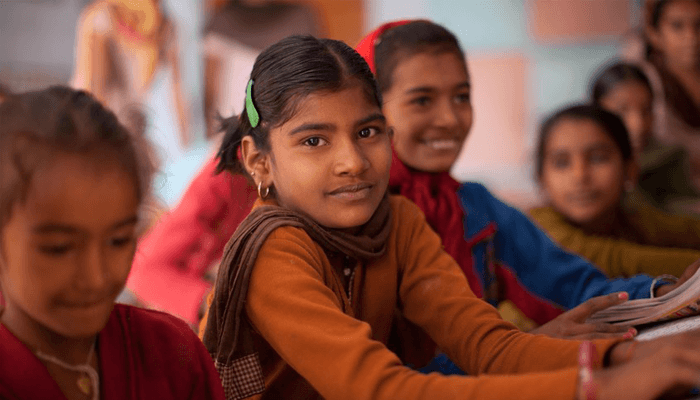
The Fairtrade Premium is an extra sum of money farmers and workers can invest in community, environmental or business projects of their choice. This could include essentials such as healthcare, education, housing and water, as well as developing their businesses and caring for the environment.
Fairtrade offers some of the highest Premiums in the industry for producers to invest in their businesses and communities.
In 2021 sales of Fairtrade products in the UK generated £25.2 million (€30m) for producers to invest.
So when you buy a Fairtrade product, you know that you are supporting farmers and their communities.
15. In 25 years, shoppers generated €1 billion in Fairtrade Premium for farmers and workers
2019 marked the 25th anniversary of Fairtrade in the UK. We estimated that, over that time, Fairtrade farmers and workers had received around €1bn in Fairtrade Premium, as additional funds to be invested in communities and businesses.
More recently in 2021, sales of Fairtrade products in the UK generated £25.2m in Fairtrade Premium.
16. 78% of UK consumers care about Fairtrade
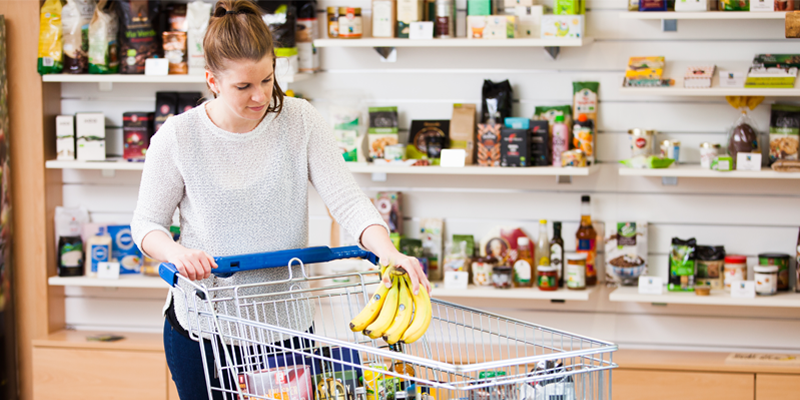
According to Kantar research published in November 2022*, 77% of UK consumers care about having an independent third party check that brands are treating their suppliers fairly. Even more consumers – that’s 78% – care about Fairtrade.
This is important because consumers play a vital role in making trade fair.
17. There are more than 2,000 grassroots campaigning groups across the UK
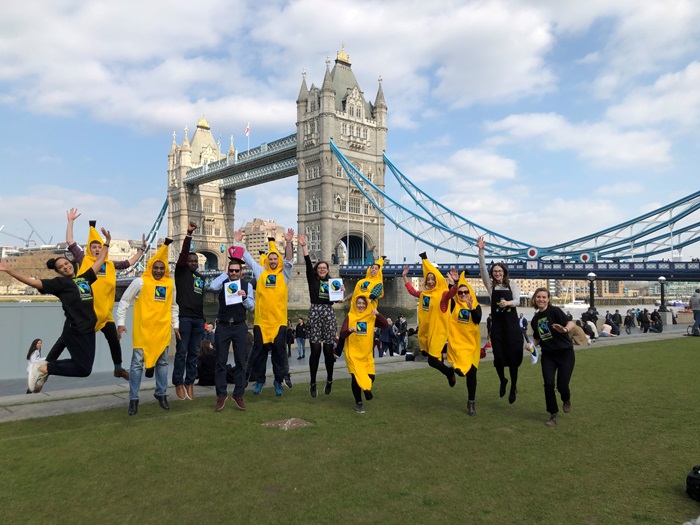
From Fairtrade towns, cities and boroughs, to Fairtrade schools, universities and faith organisations, there are hundreds of groups across the UK campaigning to make trade fair.
Find out more about getting your community involved in Fairtrade.
18. Fairtrade is global
We are a global organisation that is co-owned by 1.9 million farmers and workers. As an international movement, there are now nearly 30 Fairtrade organisations across Europe, Japan, North America, Australia and New Zealand as well as networks of producer organisations from Asia, Africa, Latin America and the Caribbean, plus local marketing organisations.
Add to that thousands of campaigner groups and you have a truly global network.
19. Fairtrade is fighting for a living income for cocoa farmers
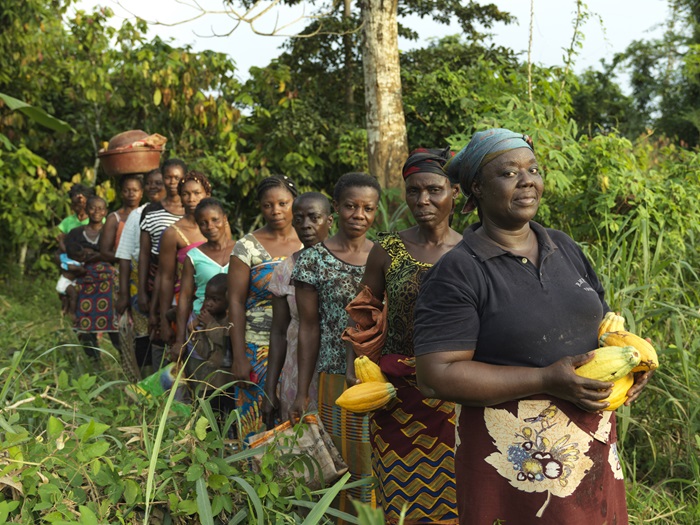
Chocolate is one of the UK’s favourite foods yet the farmers growing cocoa do not see enough of the benefits.
Only 3% of cocoa farmers in West Africa are able to earn a living income, with enough money for food, medicine, clothing and education. The living income in Côte d’Ivoire, where most cocoa is grown, has been calculated as £1.97 a day, which is double what most currently earn.
By choosing Fairtrade chocolate, we increase demand for Fairtrade so that more farmers are able to benefit. Find out more about our campaign for living incomes.
20. Fairtrade requires living wages be paid to garment workers
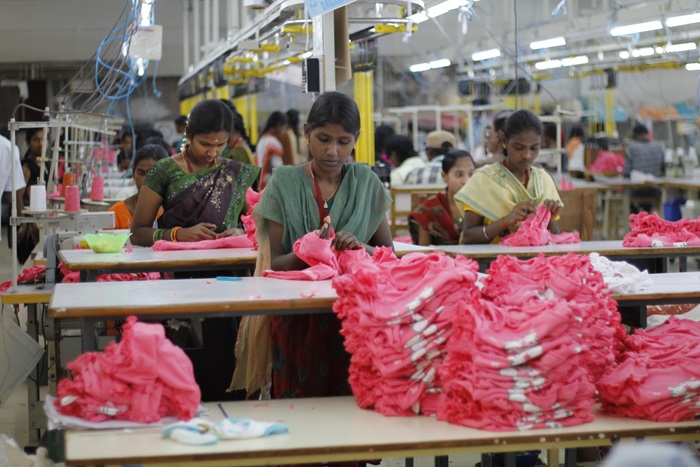
The Fairtrade Textile Standard is the first standard for the textile industry to define a set time period to reach living wage. Annual wage increases begin upon certification – this is controlled during audits by FLOCERT (please see point 8 above).
It also means that brand owners will be contractually responsible to plan their purchasing in a fair and long-term way. This is essential for making sure workers receive wage increases.
Overall, the standard aims to support factory workers in tackling challenging working conditions.
Find out where you can buy Fairtrade cotton products.
21. Fairtrade is the most recognised and trusted sustainability label in the world
Nearly seven in ten people have seen the Fairtrade label, and of these, nearly nine in ten trust it. In the UK, Fairtrade is a household name with an estimated 91 percent of consumers recognising the FAIRTRADE Mark.
22. Choosing Fairtrade products helps to tackle the climate crisis
Climate change is one of the greatest challenges we face, and farmers are at the forefront of this crisis.
We all rely on farmers to produce the food we need. But extreme weather and rising temperatures are already hitting the production of major Fairtrade commodities including coffee, cocoa and tea.
According to Oxfam, 80 percent of the world’s food comes from 500 million small-scale farms. Fairtrade mainly works with small-scale farmers who sign up to rigorous standards which include protecting the natural environment.
Hear Ebrottié, a cocoa farmer from Côte d’Ivoire, talk about how the climate crisis is affecting his crops:
23. Fairtrade flowers can be a more environmentally friendly choice
Research commissioned by Fairtrade in 2018 found that Kenyan flowers have a lower carbon footprint than flowers grown in the Netherlands out of season.
Since Fairtrade flowers are primarily grown in East Africa, they are close to the equator with an abundance of sunlight. This means they are grown in naturally heated greenhouses rather than under artificial heat and light in European countries.
Several Fairtrade flower farms in Kenya have even been awarded carbon neutral status by One Carbon World by adopting measures such as introducing solar panels, collecting rainwater for irrigation and recycling water.
24. A product can be both Fairtrade and organic
Lots of popular products are certified both Fairtrade and organic. Fairtrade trains and supports farmers to go organic to increase the value of their products and protect their local environment.
Local Fairtrade officers train farmers to reduce their use of harmful pesticides and offer advice on adopting organic pest control and natural fertilisers.
25. Fairtrade helps support women farmers and workers
Fairtrade Standards protect farmers, workers and the environment and are designed not to discriminate. In fact, we promote gender equality in sectors that have long been male dominated.
Of the 1.9 million farmers and workers in Fairtrade-certified producer organisations, 17 percent of farmers and 41 percent of workers are female. Our Gender Strategy recognises that women’s empowerment and gender equality need to be promoted at all levels.
Read about the Women’s School of Leadership in Côte d’Ivoire set up thanks for the Fairtrade Premium.
Find out how Fairtrade flowers are empowering women in Ethiopia.
* Kantar Profiles, Sample 1,257 (GB 16+), November 2022
